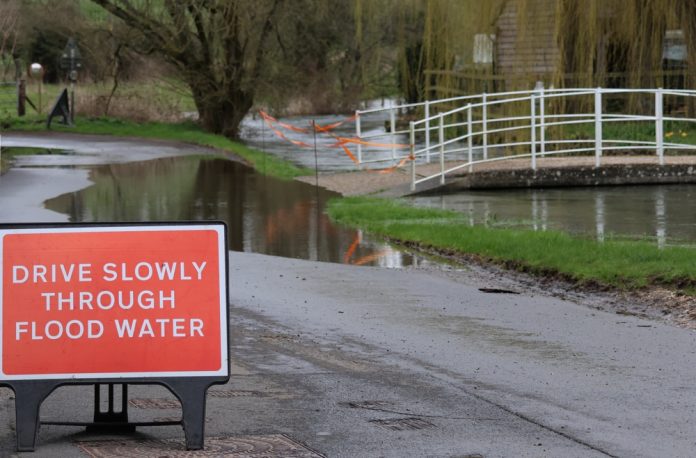With rural communities increasingly on the frontline of extreme weather and the devastating impacts of flooding, a unique partnership has been launched today to support rural flood resilience and help farmers and communities adapt to a changing climate.
Climate change means that people, places, and nature are becoming more susceptible to rural flooding and severe storms.
Last winter saw one of England’s wettest periods since records began in 1836.
Tackling joint challenges with joint solutions
The Rural Flood Resilience Partnership has been established to improve collaboration, deepen understanding of vulnerabilities, and support rural communities and agricultural businesses in building their resilience to present and future flood risks and coastal erosion.
The Partnership unites organisations representing government agencies, trade associations, rural communities, and businesses to tackle a joint challenge with joint solutions.
The six equal founding partners are Action with Communities in Rural England, the Association of Drainage Authorities, the Country Land and Business Association, the Environment Agency, the National Farmers Union, and Natural England.
Today, the Partnership published its work plan covering 2024 to 2026. Partners and a wide range of projects will collaborate to improve their evidence base and draw on this to co-develop solutions.
The work plan sets out 21 actions supporting seven strategic outcomes focused on developing the evidence base behind decision-making to increase resilience, ensuring communities, farmers, and landowners have access to quality advice and support, and engaging rural communities in flood resilience.
Communities need increased protection from rural flooding
James Blake, Chair of Trustees Action with Communities in Rural England, said: “It’s vital that everyone living and working in rural communities has an opportunity to engage with and influence plans to manage the consequences of climate change.”
Caroline Douglass, Executive Director for Flood and Coastal Risk Management, Environment Agency, added: “Rural flooding presents specific challenges to those living and working in rural communities, from ruined crops to having road access cut off by floodwaters.
“Since 2015, flooding and coastal change projects have been completed to protect more than 400,000 hectares of agricultural land better.
“This includes 280,000 hectares between 2015-2021, helping to avoid more than £500 million worth of economic damage to agricultural land production.”
She concluded: “The new Rural Flood Resilience Partnership will help farmers, land managers, and rural communities become more resilient to the impacts of climate change while retaining the vital role of managing land and producing sustainable food.”
The Partnership forms part of the wider work that all partners are undertaking on flood and coastal resilience.
All flood and coastal risk management schemes delivered by risk management authorities in England are carefully assessed to ensure the greatest benefit for people and property.
Approximately 40% of all schemes and 45% of investments better protect properties in rural communities.





